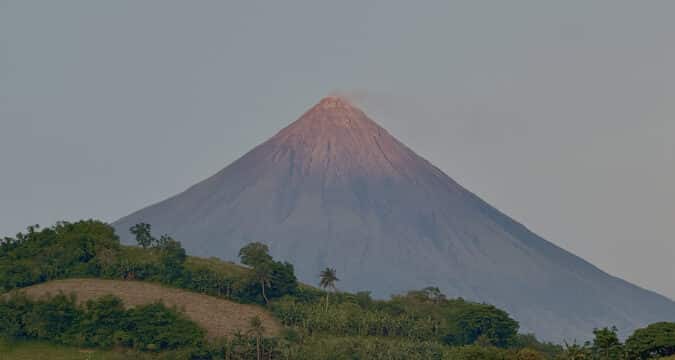
MANILA (SE): The Diocese of Legazpi condemned the worsening environmental degradation in Albay province, blaming irresponsible quarrying, deforestation and a lack of public consultation on infrastructure projects as evidence of “systemic neglect”, CBCP News reported.
In a pastoral statement issued on June 22, Bishop Joel Baylon and the diocesan clergy urged government officials and the public to take responsibility for what they called an escalating environmental crisis.
“Do not allow development to become an excuse for destruction… Albay deserves better—and we can still choose to do better,” part of the statement reads.
Addressing public officials, the diocese called for integrity and transparency in governance.
“When public projects ignore environmental safeguards, override communities, or enrich only the few, they betray the common good,” it said.
Do not allow development to become an excuse for destruction… Albay deserves better—and we can still choose to do better
Bishop Baylon
The diocese criticised ongoing quarrying activities on the slopes of Mount Mayon—a protected area—and warned about the consequences of clearing forest cover and altering waterways CBCP News reported.
It also raised concern over infrastructure projects encroaching on geologically sensitive and heritage zones “with little regard for ecological impact or the long-term welfare of residents.”
The statement said, “In various towns, our people have begun to ask: Who benefits from these projects? Why are those most affected rarely consulted?”
Albay was designated a UNESCO Biosphere Reserve in 2016 — a status the diocese said is now under threat due to ecological degradation.
As we celebrate the 500 years of Christianity in the Philippines. The Chaplaincy to Filipino Migrants organises an on-line talk every Tuesday at 9.00pm. You can join us at:
https://www.Facebook.com/CFM-Gifted-to-give-101039001847033
“For the times we remained silent when we should have spoken… we sincerely ask forgiveness,” the pastoral letter said. “This is a moment for repentance and renewal, not only in words but in witness.”
Meanwhile in related news, LiCAS News reported that in a report presented to the UN Human Rights Council, Elisa Morgera, special rapporteur on human rights and climate change, said the phaseout of fossil fuels is now a “non-negotiable” obligation under international law.
The overwhelming evidence of the interlinked, intergenerational, severe and widespread human rights impacts of the fossil fuel life cycle… compels urgent defossilisation of our whole economies
Elisa Morgera
“The overwhelming evidence of the interlinked, intergenerational, severe and widespread human rights impacts of the fossil fuel life cycle… compels urgent defossilisation of our whole economies,” Morgera wrote.
The 55-page report, released ahead of the council’s 59th session, outlines how fossil fuel extraction and use remain the leading causes of global warming, pollution, and biodiversity loss.
Morgera called for a ban on new fossil fuel projects, the revocation of existing licenses, and divestment from fossil fuel financing.
“Defossilisation is the single most impactful contribution to the protection of human health and the planet,” she said.
Despite the growing climate consensus, fossil fuel production is projected to be 110 per cent higher by 2030 than what would be consistent with limiting warming to 1.5°C.
Communities in so-called “sacrifice zones”—often Indigenous Peoples, low-income groups, and children—face chronic exposure to toxic pollution, respiratory illness, cancer, and forced displacement.
The report also linked rising plastic and petrochemical production to increased fossil fuel dependency, posing long-term health and ecological threats, LiCAS News reported.
Fossil fuel companies posted record earnings in 2023—US$2.4 trillion for oil and gas alone—while receiving at least US$1.4 trillion in government subsidies.
According to the report, these subsidies and legal protections hinder investment in renewable alternatives and perpetuate global inequality.



